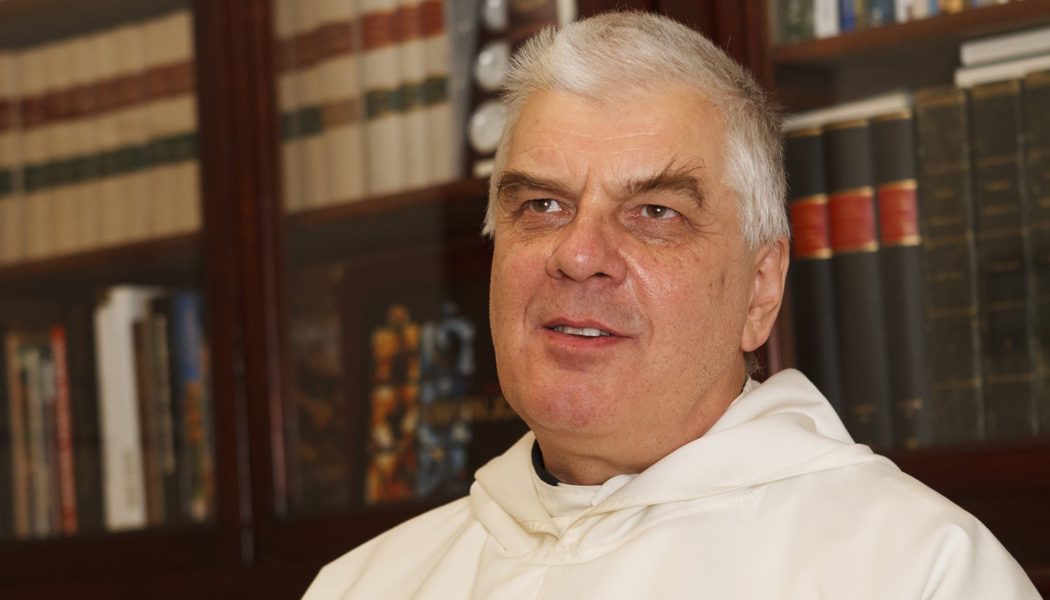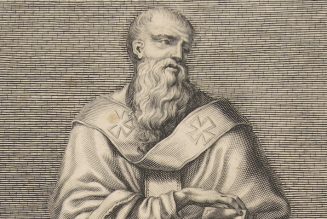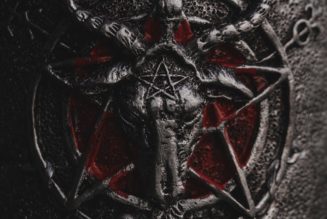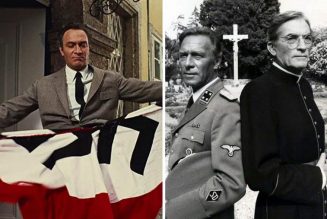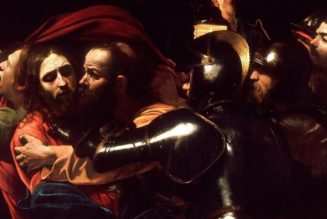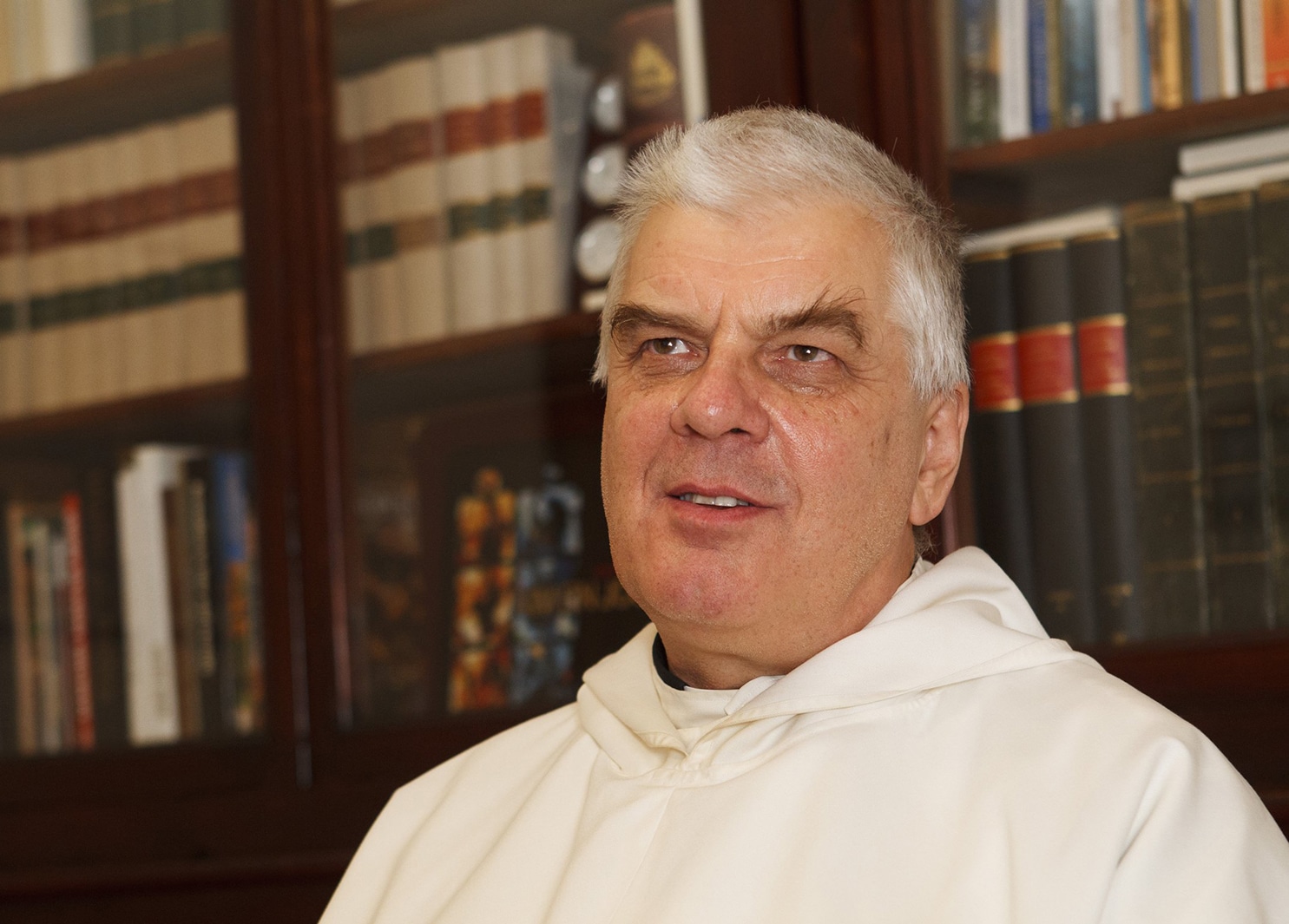
“In the contemporary confusion, people are no longer clear about basic moral values,” says Father Wojciech Giertych, O.P., Theologian of the Papal Household. For Father Giertych, the theology of St. Thomas Aquinas can help the Church address that confusion.
Appointed by Pope Benedict XVI in 2005, Father Giertych serves the Church as an advisor on theological matters, a role that marries deep spiritual insight with intellectual rigor. A member of the Polish Dominican province, Father Giertych is a renowned expert in moral theology. He teaches at the Pontifical University of St. Thomas Aquinas (the Angelicum) in Rome and is a member of the prestigious Pontifical Academy of St. Thomas Aquinas. In this interview with Our Sunday Visitor, Father Giertych shares his perspectives on the enduring value of St. Thomas Aquinas and the evolving landscape of Catholic theology.
This interview has been edited for length and clarity.
Our Sunday Visitor: Do you think that Saint Thomas Aquinas still has a significant role to play in Catholic theology today?
Father Wojciech Giertych, OP: The suggestion “still” and the word “today” give the idea that the truth is historically relative, and so today the truth may be true, and tomorrow it may no longer be true. But this is absolute rubbish and impossible. What is true, is true. Thomas Aquinas is a great Dominican medieval theologian who, to the maximum, developed the mind to know both natural truths and, in the realm of theology, accept the revealed truths that God has made known to us. He tried to think about them, bring out their intelligibility, grasp what we can know of the mysterious truths, and formulate them in precise articles of faith. And this is permanently valid.
In the contemporary confusion, people are no longer clear about basic moral values because of how social life is functioning today; people are lost. I think very soon in the Universal Church, there will be a wild cry asking for a speculative theology which precisely names the truth because to live, we have to base ourselves on something solid. Now, you cannot marry if you’re not sure about the definition of marriage. You cannot struggle against temptations if you don’t know the difference between a sin and a virtue. You cannot make complex decisions in the realms of bioethics or in the realms of politics or economics if you don’t know the difference between goodness and evil. The mind has to grasp these fundamental issues and then this gives solid foundations. I think Aquinas is very much valid today and will be for decades and centuries to come.
Our Sunday Visitor: This fall marked the 30th anniversary of Pope St. John Paul II’s encyclical Veritas Splendor. There’s been a lot of discussion about that document and the nature of moral theology. What do you think is the legacy of Veritas Splendor today?
Father Giertych: Veritatis Splendor was a crisis document. After Vatican II, the idea of reforming — changing — the Church had an impact in the realm of moral theology. Vatican II didn’t really give us a renewed moral theology because it was unprepared. In fact, there was a draft of a document, de Morali Ordine Christiano (“On the Christian Moral Order”), which at Vatican II was studied and there were commissions working on it. Then the commissions were changed. New commissions were set up, and ultimately, elements of that discussion appeared in some of the final documents. But basically the council fathers tore up the document and threw it to the dustbin. And so, Vatican II has not given us a major document on the principles of moral theology.
Veritatis Splendor clarified pressing issues but did not offer a fundamental approach to moral theology. It contains intuitions and references the Catechism of the Catholic Church, which appeared almost simultaneously. Unlike Veritatis Splendor, the Catechism is not a crisis document but calmly presents principles. Its chapters, inspired by Scripture, form a dialogue. For instance, the first chapter asks, “Master, what good must I do?” while the final chapter emphasizes not wasting the cross of Christ. Ultimately, Christian morality centers on the cross of Christ, who bore our sins, liberated us from sin, and bestowed divine grace upon us. This grace, given through Christ’s sacrifice and manifested by the Holy Spirit, is to be lived out in practical charity.
Articulating this in practice, addressing practical moral questions, and synthesizing moral theology is the work of theologians. This is an ongoing process. Veritatis Splendor has effectively excluded incorrect paths, but it hasn’t fully articulated a positive direction. However, this allows room for thought and reflection. The main challenge the Church faces today is not about redefining what is or isn’t a sin, but rather about integrating the ever-changing moral challenges with the profound mystery of Christ’s death and resurrection, and the Holy Spirit’s grace that liberates us. The key is to articulate this in a way that ensures the cross of Christ is not in vain.
Our Sunday Visitor: What do you think is the most important theological question that the Church faces today?
Father Giertych: One of the major challenges the Church is dealing with is attacks coming not only in the realm of sexual morality but in the broader scope of morality itself. “Why is the Church discussing moral principles?”: This is a critical question emerging in many countries. However, I don’t think there’s a singular response emanating from the Vatican or the pope that can address this universally. The key issue is that we need to form ourselves in the light of great traditions and masters, such as Aquinas or St. Augustine. Some may find Aquinas challenging, while others may turn to the writings of St. Thérèse of Lisieux or St. John Paul II. It’s vital to shape our spiritual lives focused on God and to live out his grace.
There are cultural and contemporary world resistances against this reality, varying from place to place. The resistance to the fullness of faith in Africa, China or Eastern Europe, for instance, is different from that in Germany, where German philosophy influences thinking. The task for theologians, bishops and lay Catholic intellectuals is to identify these resistances to faith, not only among academics but also among ordinary people engaged in everyday activities like watching football or attending concerts. What is blocking their path to the fullness of faith?
This requires individualized attention. The problems differ across the world and within different societal segments. We need to delve into the great Catholic tradition to find answers that can address these blockages. There’s not one answer coming from the pope’s window to all the problems worldwide. What the pope says out of the window is correct, is in line with Catholic teaching. But we need more. There must be an intellectual effort to think both outside the confines of faith in the discipline of philosophy and within faith in theology, accepting the mysteries revealed by God and exploring how they can illuminate and resolve these issues. Some blockages are not just intellectual but also emotional. For example, in Africa, there might be fear of ancestral curses, while in India, the caste system prevails in people’s minds. We must work to unblock these impediments to help people live mature, responsible and free lives. Catholic thinkers need to undertake various research avenues to reveal the fullness of Christ’s grace.
Our Sunday Visitor: What are your hopes for the future of Catholic theology?
Father Giertych: I hope for a deeper engagement in theological reflection. I would encourage bishops and theologians to address these issues, employing two key approaches. Firstly, assisting people in structuring their lives according to the real truth and the grace of Christ and living that out. Secondly, identifying and addressing the resistances they encounter. A particularly pertinent issue in the Western world is the disorder in the sexual realm. This isn’t about producing a list of dos and don’ts or moral finger-wagging, which is a common misconception about Catholic theology. The primary concern is to demonstrate how to live out the fullness of divine charity in human relationships, impacting every aspect of the human person, psyche and various types of relationships, including the sexual dimension. Charity also calls for chastity, managing sexual desire for the good of the individual and others, both within and outside of marriage. The Church needs to remind us of this, but in a positive light, showing how the grace of Christ enables people to base their lives on the profound love that is charity, infused into our hearts by the Holy Spirit. The challenge lies in unpacking this concept within the dimensions of freedom, emotions, sexuality and social relationships.
